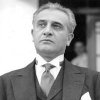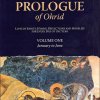Jelena Vidovic was born on February 7th, 1997. She came to the United States at the age of 5 with her parents and started playing tennis at the age of 9. With six short months of tennis experience, she entered her first tournament and placed first in both singles and doubles. When she was in high school, she did the Running Start program. Freshman and sophomore year, she took Advanced Placement classes at her high school and her junior and senior year; she took classes at a community college. This allowed her to earn her high school diploma and Associate’s Degree at the same time. She continued playing tennis throughout high school as the number 1 player all four years and she had opportunity to play Division I tennis. Being an excellent student, she decided to play at a private Division III university to focus on her academics. Studying at a private university is extremely rigorous, but she was still able to graduate in 3 years at a 4-year Public Health program. She lives in Vancouver, Oregon with her parents, Desimir and Duja.
Academic Achievements:
- Finished 6th and 7th Grade in one year
- Earned High School Diploma and Associate’s Degree at age 17
- Earned Bachelors in Public Health at age 20 in 3 years at 4-year private university.
High School: Tennis
- Finished 2nd in Doubles Washington State Championships
- Finished 2nd Singles Both District and Regional Tournament all four years
- Most Valuable Player four times
- Four-time Greater St. Helens League Scholar-Athlete
Pacific University: Tennis
- Northwest Conference Honorable Mention
- Northwest Conference Athlete of the Week
- Northwest Conference First Team All-Conference
- Pacific University #1 Singles and Doubles Player
- Only Pacific player to go a perfect 3-0 in both singles and doubles on Boxer’s Southern California trip
- Ranked 13th Division III West Region
- Ranked 47th NCAA Division III (First Player to become nationally ranked)
- Finished the Season with a 14-2 Singles Record and 9-7 Doubles Record





